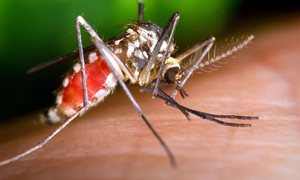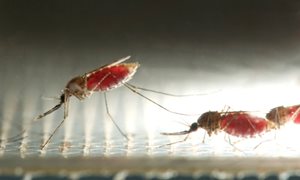
Mihai Netea and colleagues of the research theme Infectious diseases and global health have shown that a flu vaccination enhances the immune response against the new SARS-CoV-2 coronavirus. This may possibly lead to a better protection against a COVID-19 infection. They show that hospital staff who received a flu vaccine in the winter 2019-2020 were less likely to be infected with the coronavirus.
The study has been published on MedRxiv pending peer review.
Every year, the flu causes 290,000 to 650,000 deaths worldwide and a large group of people who are at increased risk of a flu infection are invited to get the flu vaccine. Healthcare personnel also receive an invitation for the influenza vaccine, which is important for both themselves and their patients.
Influenza vaccine ensures trained immune response
The study looked at two things. Firstly, a lab model showed that last winter's influenza vaccine leads to an improved immune response against the new SARS-CoV-2 coronavirus in cells of healthy individuals: a so-called 'trained immune response'. Previous studies have shown that it can provide broad protection against infections.
Secondly, the number of COVID-19 infections among health care personnel was examined, distinguishing between groups that were vaccinated against influenza and those that were not vaccinated with the influenza vaccine in autumn 2019. The analysis showed that health care personnel who were vaccinated with the flu vaccine were less likely to have a COVID-19 infection: the number of COVID-19 infections was 39% lower in the vaccinated group.
Vaccinated staff less frequently infected with COVID-19
These data, like some recent other reports, argue for a possible beneficial effect of influenza vaccination against influenza and against COVID-19. This means that the flu vaccine could offer partial protection against both infections next winter.
Mihai Netea: "We thought it was important to publish these results now, because the flu vaccine will be made available to a large group of people in the coming period. In addition to protection against influenza, the vaccine could have beneficial effects against the new coronavirus".
Related news items

Grants for research on magnesium deficiency and malaria Vidis for Felix Hol and Jeroen de Baaij
1 July 2022 Radboudumc researchers Jeroen de Baaij and Felix Hol both receive an NWO Vidi grant for their research, respectively on magnesium deficiency in type 2 diabetes and on malaria. go to page
Field research on malaria vaccine offers unexpected surprise
23 May 2022Field research on the effectiveness of a malaria vaccine, came up with unexpected results for an international group of researchers including Benjamin Mordmüller of Radboudumc. The vaccine evokes a broader response against malaria proteins than there are in the vaccine.
go to page
Rubicon grants awarded to three RIMLS researchers
19 April 2022Three researchers have received Rubicon funding from NWO/ZonMw. This will enable Elke Muntjewerff, Laura de Vries and Laurens van de Wiel to do research at a foreign research institute for the next two years.
go to page

